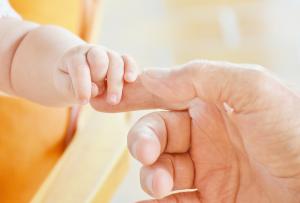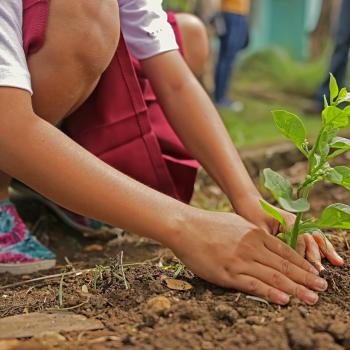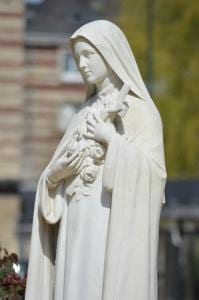
In light of Alabama’s and Missouri’s passage this week of the nation’s most rigorous state abortion laws, the debate between pro-life and pro-abortion camps is coming to a head. On Wednesday, Alabama Governor Kay Ivey signed into law a bill which bans abortions after a heartbeat is detected, about six weeks into the pregnancy, except where there is a serious risk to the health of the mother. There are no exceptions for rape or incest in the law. Missouri followed suit on Friday, passing a similar law. Several other states are in the process of enacting their own stringent anti-abortion legislation in an effort to challenge Roe v. Wade. I believe the abortion bans are necessary to protect the unborn, the family, and society at large. Abortion hurts the women and men who are the parents of the child, as well as the baby. It is a painful choice for the mother and other family members and it ends the life of an innocent human being.
Life is Precious
The Catholic Church teaches that human life is sacred and precious and should be protected at all stages, from conception to natural death. “Human life must be respected and protected absolutely from the moment of conception. From the first moment of his existence, a human being must be recognized as having the rights of a person – among which is the inviolable right of every innocent being to life.” (CCC 2270) The Church promotes and preserves the dignity of all human life because we are all children of God, created by him, with an eternal soul that will live forever. The United States Conference of Catholic Bishops lays out the belief that life is precious at every stage in this statement of beliefs.
Abortion is a Grave Matter
Some believe that Catholics and other Christians are overly focused on the abortion debate, while neglecting other issues. The rationale behind the intense focus on this issue is that the Church distinguishes between serious (mortal) and less serious (venial) sin. Not all sin is created equal. Abortion is a more serious offense than many other of the injustices that occur in our nation and world today. It is the destruction of an innocent human life. As the Catechism indicates: “Formal cooperation in an abortion constitutes a grave offense. The Church attaches the canonical penalty of excommunication to this crime against human life. “A person who procures a completed abortion incurs excommunication latae sententiae,” “by the very commission of the offense,” and subject to the conditions provided by Canon Law. The Church does not thereby intend to restrict the scope of mercy. Rather, she makes clear the gravity of the crime committed, the irreparable harm done to the innocent who is put to death, as well as to the parents and the whole of society” (CCC 2272) The seriousness of this matter is clear. Pope Francis, however, has extended the ability of priests to grant forgiveness for the sin of abortion.
The Church Cares for All Life
Although the Church is intensely focused on this issue of abortion; she cares for and protects life at all stages. The Church has always been instrumental in the instituting of care of widows, orphans, the sick and the poor. Catholic groups are one of the largest providers and contributors to social services in the world. According to a Catholic Herald article, there are 140,000 schools, 10,000 orphanages, 5,000 hospitals and about 16,000 other health clinics operated by the Catholic Church. Caritas, the umbrella organization for Catholic aid agencies, is one of the largest aid agencies in the world. This does not include services provided by religious orders, other charitable groups, and around 200,000 Catholic parishes around the world, as the article reports. No one can say that the Church does not care for those in need in every phase of life.
When Does Life Begin?
For many, the issue comes down to the question of when life begins. Scientific evidence points to the reality that life begins at the moment of fertilization. “Development of the embryo begins at Stage 1 when a sperm fertilizes an oocyte and together they form a zygote.” [England, Marjorie A. Life Before Birth. 2nd ed. England: Mosby-Wolfe, 1996, p.31] “The development of a human being begins with fertilization, a process by which two highly specialized cells, the spermatozoon from the male and the oocyte from the female, unite to give rise to a new organism, the zygote.”
[Langman, Jan. Medical Embryology. 3rd edition. Baltimore: Williams and Wilkins, 1975, p. 3] The American College of Pediatrics’ position statement on life includes the following: “At fertilization, the human being emerges as a whole, genetically distinct, individuated zygotic living human organism, a member of the species Homo sapiens, needing only the proper environment in order to grow and develop. The difference between the individual in its adult stage and in its zygotic stage is one of form, not nature.” (When Human Life Begins, March, 2017)
The Church Supports Women
Some object to the absence in the law of an exception for cases of rape and incest. These situations are horrific, tragic circumstances and, in a perfect world, they would not occur. However, we live in a fallen, sinful world where evil is a reality and terrible events occur every day. One of the central themes of Christ’s message of redemption is embracing our suffering when it comes. If we are to call ourselves Christians, we must embrace the gospel message and take up our crosses, as heavy as they sometimes may be. This includes the sacrifice (and often suffering) of carrying a child conceived in the one of the unspeakable crimes of rape or incest. A baby is a baby, no matter the circumstances around which the pregnancy occurs. The mother shares in the redemptive suffering of Jesus when she endures and accepts the cross which results from these traumatic events. As Christians, we are also called to support and aid those in difficult pregnancies. There are many Catholic and Christian organizations and services to help women who find themselves in an unplanned pregnancy or a pregnancy resulting from a trauma. Many offer free pregnancy services, assistance with medical expenses and baby items such as formula and diapers, and also counseling and parenting classes. These organizations exist not only to protect the unborn, but also to walk with the mother, who is often confused and frightened, and sometimes traumatized, through her pregnancy and offer assistance.
Adoption, Not Abortion
Adoption is always an alternative to abortion. So many women with difficult pregnancies who have considered abortion but opted against it have, eventually, come to see their decision as a great blessing, whether they chose to keep the child or give the child up for adoption. There are countless families who are longing to adopt a child; abortion destroys that possibility for the child and the potential adoptive parents. In the situations of rape or incest, or in any difficult pregnancy, adoption is always a loving option that can lessen the burden on the mother and yet preserve and protect the life of the unborn child.











